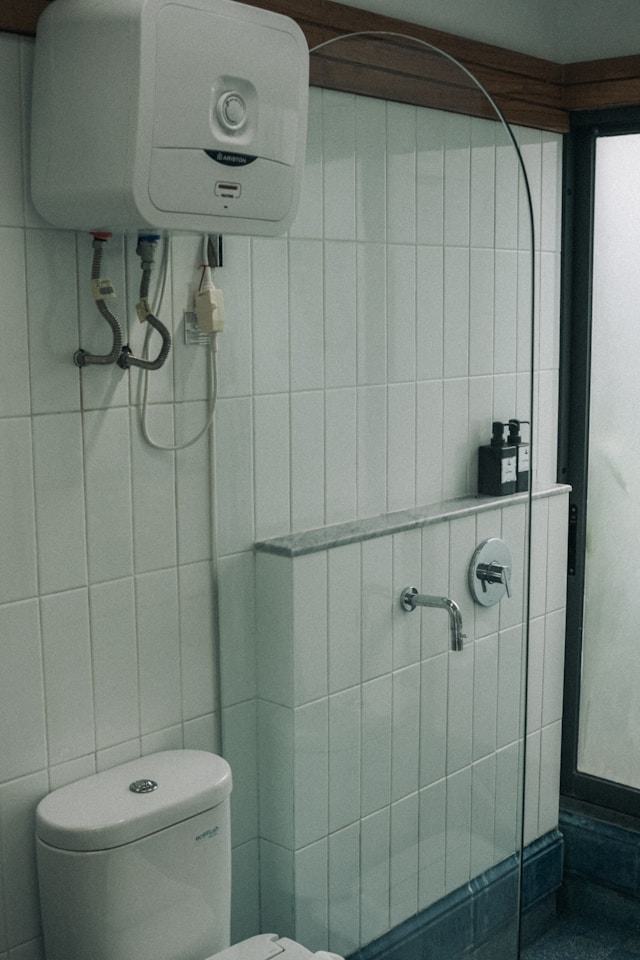Rural and homestead living presents unique challenges when it comes to home utilities, and choosing the right water heating system is no exception. Unlike urban dwellings with readily available utilities and service infrastructure, rural properties must carefully consider factors like power availability, water quality, installation complexity, and maintenance accessibility. The decision between tankless and traditional water heaters becomes even more critical when your nearest plumber might be an hour away and your power source could be solar panels or a generator.
Understanding Rural Water Heating Challenges
Rural properties face distinct obstacles that urban homeowners rarely encounter. Well water often contains minerals and sediments that can affect water heater performance and longevity. Power outages may be more frequent and longer-lasting, making backup heating solutions essential. Limited access to natural gas means many rural homes rely on propane, electricity, or alternative energy sources. Additionally, the nearest service technician might be significantly farther away, making reliability and ease of maintenance paramount considerations.
Water demand patterns also differ in rural settings. Homesteaders might need hot water for livestock care, garden maintenance, or food processing activities beyond typical household use. Seasonal variations can be more extreme, with summer demands for outdoor cleaning and winter needs for livestock watering creating fluctuating hot water requirements.
Traditional Tank Water Heaters: The Rural Workhorse
Traditional tank water heaters have long been the standard choice for rural properties, and for good reason. These systems store 30-80 gallons of heated water, providing immediate availability for high-demand situations. For homesteads with multiple family members, livestock care needs, or food processing activities, having a large reserve of hot water readily available offers significant advantages.
Reliability and Simplicity Tank water heaters feature straightforward operation with fewer electronic components that could fail. This simplicity becomes crucial when professional service isn’t readily available. Most tank systems can be repaired with basic plumbing skills and commonly available parts, making them ideal for self-reliant rural living.
Lower Upfront Costs Traditional water heaters typically cost 50-70% less to purchase and install compared to tankless systems. For homesteaders managing tight budgets or building from scratch, this cost difference can be allocated to other essential infrastructure needs.
Backup Heating Options Many tank water heaters can accommodate dual heating elements or backup systems. Electric units can be supplemented with wood-fired heat exchangers, while propane models can include electric backup elements for times when propane delivery is delayed.
Tankless Water Heaters: Modern Efficiency Meets Rural Needs
Tankless water heaters heat water on-demand, eliminating standby heat loss and providing unlimited hot water as long as demand doesn’t exceed the unit’s capacity. For rural properties, these systems offer compelling advantages in specific situations.
Energy Efficiency Tankless units operate 20-30% more efficiently than traditional tanks, a significant consideration for properties relying on solar power, generators, or expensive propane delivery. This efficiency becomes even more valuable when energy costs are higher due to remote location surcharges or limited renewable energy capacity.
Space Conservation Rural homes often maximize every square foot for living space or storage. Tankless units mount on walls and require minimal floor space, freeing up valuable room in basements, utility areas, or cabins where space is at a premium.
Longevity Quality tankless systems typically last 15-20 years compared to 8-12 years for traditional tanks. For remote properties where replacement and installation are logistically challenging, this extended lifespan provides substantial value.
Power Source Considerations
The choice between tankless and traditional systems often depends heavily on available power sources. Electric tankless units require significant electrical capacity – often 60-80 amps – which may exceed the capability of solar power systems or small generators. However, propane tankless units can operate with minimal electrical requirements, making them suitable for off-grid properties.
Traditional electric tanks typically require 20-30 amps, making them more compatible with limited electrical systems. Propane tank models need only pilot light electricity, allowing operation during power outages.
Water Quality and Maintenance Factors
Rural well water often contains minerals that affect water heater performance differently. Hard water creates scale buildup that impacts tankless units more severely due to their narrow water passages. Traditional tanks, while also affected by hard water, are generally more tolerant of mineral deposits and easier to flush and maintain.
However, tankless units can be equipped with water softening systems more easily due to their compact size and lower water volume requirements. For properties with extremely hard water, this combination might actually provide better long-term performance.
Professional Installation and Service Considerations
Rural properties must carefully consider installation requirements and ongoing service needs. Tankless systems often require more complex installation, including upgraded gas lines for propane units or electrical service upgrades for electric models. Finding qualified installers familiar with both tankless technology and rural installation challenges can be difficult.
Traditional tank installations are generally straightforward and can often be completed by homeowners with basic plumbing skills. When professional help is needed, consulting with plumbing specialists like Beis Plumbing ensures proper system sizing and installation that accounts for unique rural factors like well water characteristics, power limitations, and seasonal demand variations.
Making the Right Choice for Your Homestead
The decision between tankless and traditional water heaters ultimately depends on your specific rural situation. Properties with reliable high-capacity electrical service, soft water, and moderate hot water demands may benefit from tankless efficiency. Homesteads with limited power, hard water, high peak demands, or tight budgets often find traditional tanks more practical.
Consider your long-term plans, energy sources, water quality, usage patterns, and maintenance capabilities when making this important decision. The right water heating system will provide reliable hot water while complementing your rural lifestyle and self-sufficiency goals.



